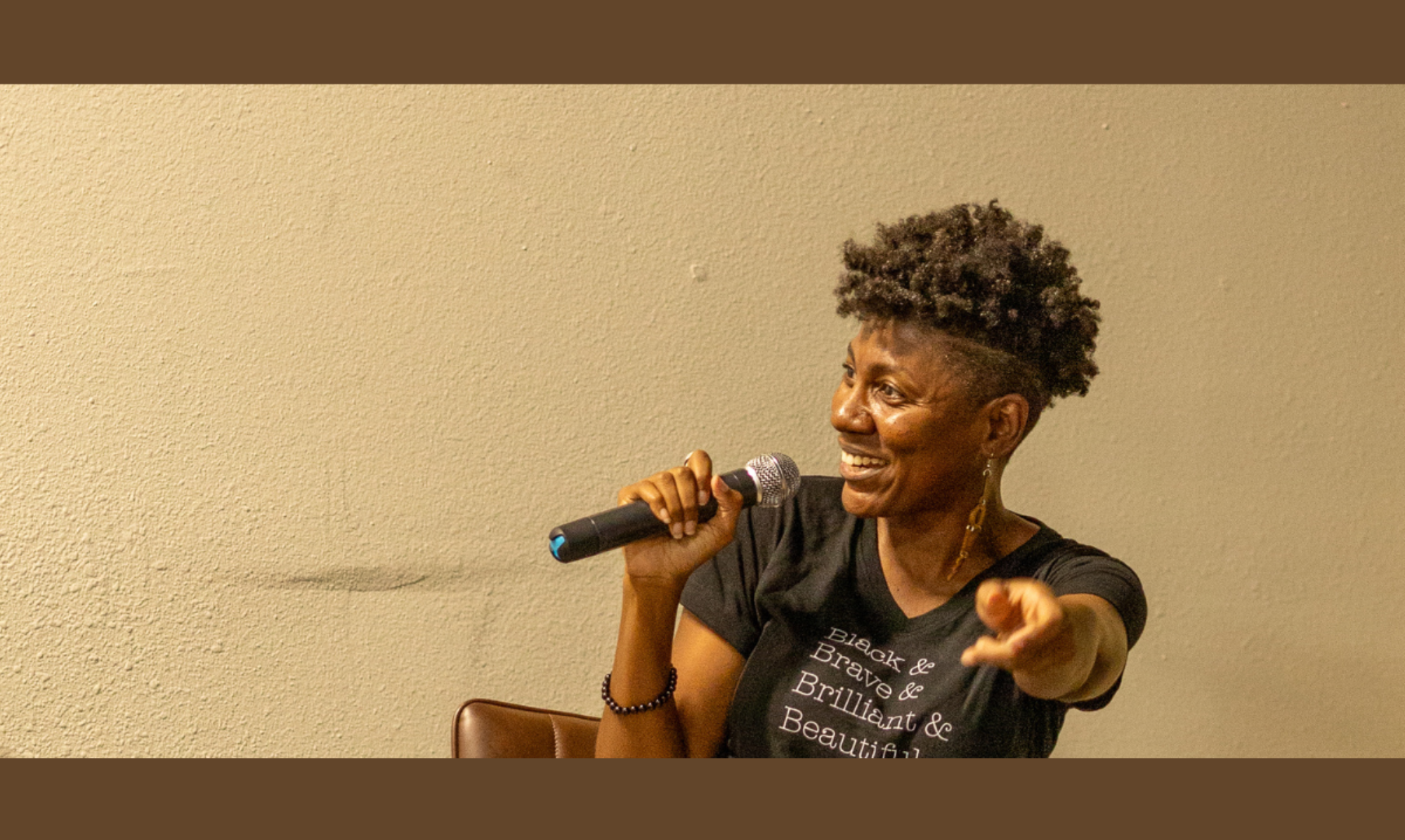Two girls of different skin tones, growing up together as sisters born of the same mother AND father. Sisters and colorism collide, creating a unique relationship. This is a glimpse into the mind of the lighter skinned sister as she reflects on colorism.
Describe your home/family and work life.
I have been married for five years and am expecting my first child in March of next year. I am the middle child of three children and grew up in Baton Rouge, LA with my mother. My parents were divorced when I was 11. I currently practice school social work at a high school in southern Louisiana. I am a social worker by profession and a doctoral candidate in the School of Social Work at LSU. I maintain a very busy and active lifestyle between work, LSU, and family. In addition, I assist with the youth group at my church planning activities and teaching bible classes.
Tell us about your earliest memories recognizing or dealing with skin color and colorism.
I remember a time when my sister was being chased and taunted by a group of white girls at our daycare center, when I was about 8 years old. My older brother and I stopped them through physical restraint. When the day care workers took stock of the incident, they concluded that the version of the story that my brother, sister, and I told could not have been true since there were no “MARKS” on our skin like those on the skin of the white girls. Obviously, the darker our skin the less likely MARKS will show up.
At the same daycare, one of my sister’s Hispanic friends really frustrated me. I was 8 years old and had to teach a cultural competence lesson to this girl all the time because she didn’t understand that I could be the “real” sister of my darker skinned siblings. She kept asking “Why are you white and your sister and brother are black?” Granted the girl was in kindergarten, and I’ve been asked similar questions by adults both black and white, but mainly by other BLACK folks.
“Do you and your brother and sister have the same mom and dad?” “You must be mixed right?” “Man your brother is black.” My response to this particularly ignorant comment was always “So are you and I.” On and on, the annoying questions/comments went.
How do you view yourself in terms of skin color now?
My skin color is just a product of my birth. I don’t see myself as any better or worse because of the color that I am. I still grimace when people make comparisons about my sister and brother’s color, as if the shades of black are limited, or that it’s impossible for a great array to exist within one family. I am awesome because I’m me, which includes my skin color, but it’s not BECAUSE of my skin color.
How, if at all, has colorism played a role in your life up to this point?
I have seen elements of bias towards me as discussed above when compared to my sister and brother at daycare or among friends. I have come to be embarrassed at times because of my lighter skin color. What I mean by this is the snobby attitude of some lighter skinned women/girls makes people believe that snobby attitudes are common among lighter skinned women/girls. I am not that way. I am still very angered when someone attempts to tell me that I might be mixed or that I have to have different parents than my darker brother and sister. So I have had many points of frustration from colorism in my life!
As you prepare to be a new mother, do you have thoughts about raising a child with a healthy attitude about skin color?
I will be adamant about my child knowing the difference between ethnicity and skin color. There are very few people whose skin is actually the color BLACK. I will be sure that my child never says “Oh mom, look at him; he’s BLACK” to refer to a dark skinned person. My child will know that he/she is a Black person, and that different shades of BLACK should not define how we treat each other. Perhaps if we teach kids to value the black ethnicity and stop putting value on looks, our ethnic group/race would be in a different position in this country.
On a personal level, what may cause an individual to be biased against dark skin or light skin?
I think a level of insecurity is present when someone demeans another for any reason. This is also the case with skin color. When insecure about our own beauty, we try to cut down the beauty of others because of their skin color.
If someone has a negative image of others because of their skin color, what can they do to change that?
Biases usually stem from ignorance, so knowing others with a particular skin color BETTER can help to ease some of the negative images.
If someone has a negative image of themselves because of their skin color, what can they do to change that?
Examining your own self-worth is often a life long process because people often go through significant changes and stages. Acceptance and appreciation of your own qualities is a start. Rather than spending time on the negative images, one should spend energy using their individual qualities to make a difference in his immediate circumstances/ community.

